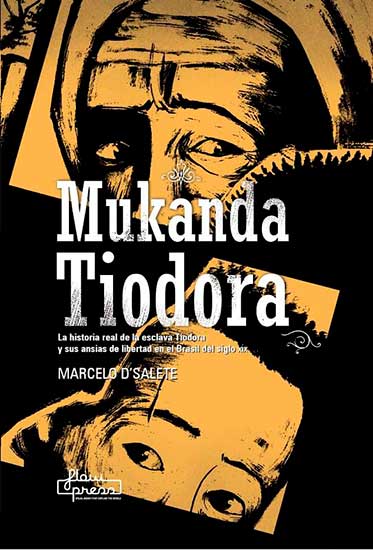Can some episodes of a person’s life be reconstructed solely from seven short letters that he dictated around the year 1866? With the same starting point, can you draw a comic of more than one hundred and seventy pages that explains the life of slaves in Brazil in the 19th century? Marcelo D’Salete has the answer to both questions: yes, you can.
The seven letters dictated by the slave Tiodora Dias da Cunha were confiscated by the Brazilian police in the framework of an investigation for theft, although they are preserved in the Public Archive of Sao Paulo, to which D’Salete had access. In this book they have been reproduced in the final annex. Good raw material for a moving story, without a doubt.
With a powerful black and white drawing, the multi-award-winning author offers us a minimal history of slavery, specifically that which developed in Brazil throughout much of the 19th century. Marcelo tells a drama but without resorting to gruesome images, something he could have done, but he has preferred to give the volume a treatment based on subtlety and spirituality. What’s more, the pages turn and words are often not necessary… With the images you can clearly understand what is happening.
Thanks to the support of writing, Tiodora tried to rebuild her family dismembered by the buying and selling of slaves, obtain her freedom and that of her husband, and return to her homeland in Africa. “Mukanda Tiodora” It is therefore inspired by these letters and speaks to us with images of families separated by human greed, of unknown whereabouts, of messages that do not reach their recipients and of what the living conditions of the poorest in society were like at that time.
“You just have to walk through these streets to see that there is a great internal struggle. A war that right now bleeds thousands of our brothers. I have read a story in the newspaper about men being tortured and humiliated and also about slaves who poison their torturers, their masters. “This text shows the terror experienced on the skin of many people”. At the end of the book, some well-documented annexes show us, among many other facts, that slavery was not abolished in Brazil until 1888; There were many years of struggles and demands until freedom was achieved. And the slave Tiodora did her part with a handful of words.
